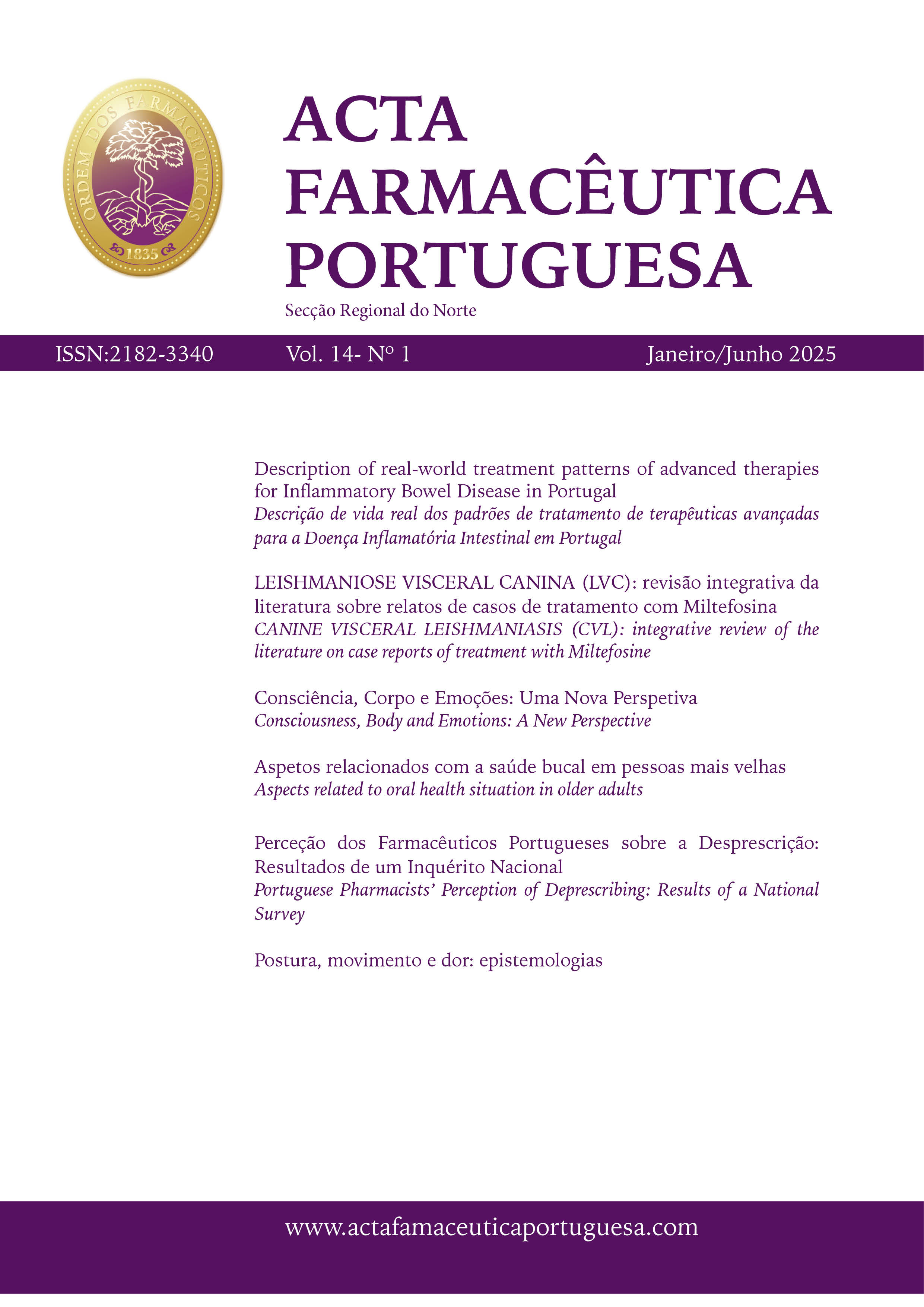Portuguese Pharmacists’ Perception of Deprescribing: Results of a National Survey
Abstract
Introduction: Polypharmacy is common among the elderly, which can be problematic if not used correctly. Therapeutic review and deprescribing have therefore become crucial practices to ensure safer and more effective treatments. The aim of this study was to assess portuguese pharmacists’ knowledge, perceptions, attitudes and challenges regarding deprescribing.
Method: A cross-sectional, observational and descriptive study carried out using an online questionnaire addressed to portuguese pharmacists between March 11 and April 8, 2025. Sociodemographic questions were included, followed by questions related to polymedication and deprescription. The data was analyzed using Microsoft Excel.
Results: 231 responses were collected in this study. Only 14.7% of participants use a formal methodology, although almost 55% suggest deprescribing in clinical practice. Polymedication, in 98% of cases, was considered to be very frequent; benzodiazepines, non-steroidal anti-inflammatory drugs and proton pump inhibitors were the drugs considered to be the main candidates for deprescription. Lack of training, time and communication with doctors were the main obstacles encountered. It was found that 71.9% had never received specialized training, although 74.5% were familiar with the concept of deprescribing. Deprescribing is considered advantageous, particularly in terms of avoiding side effects and reducing the use of potentially inappropriate medicines.
Discussion: Portuguese pharmacists have limited practical involvement due to a lack of procedures, communication with the doctor and specialized training, despite their theoretical understanding of deprescribing. However, they are open to a more active role, particularly in collaborative care models.
Conclusion: In order to strengthen the pharmacist’s role in deprescribing, it is essential to invest in continuous training and promote their integration into multidisciplinary teams, favoring a patient-centered approach. The data can support strategies for integrating deprescribing into pharmaceutical practice.
Keywords: deprescribing, potentially inappropriate medicines, pharmacists, patient safety, clinical pharmacy.


